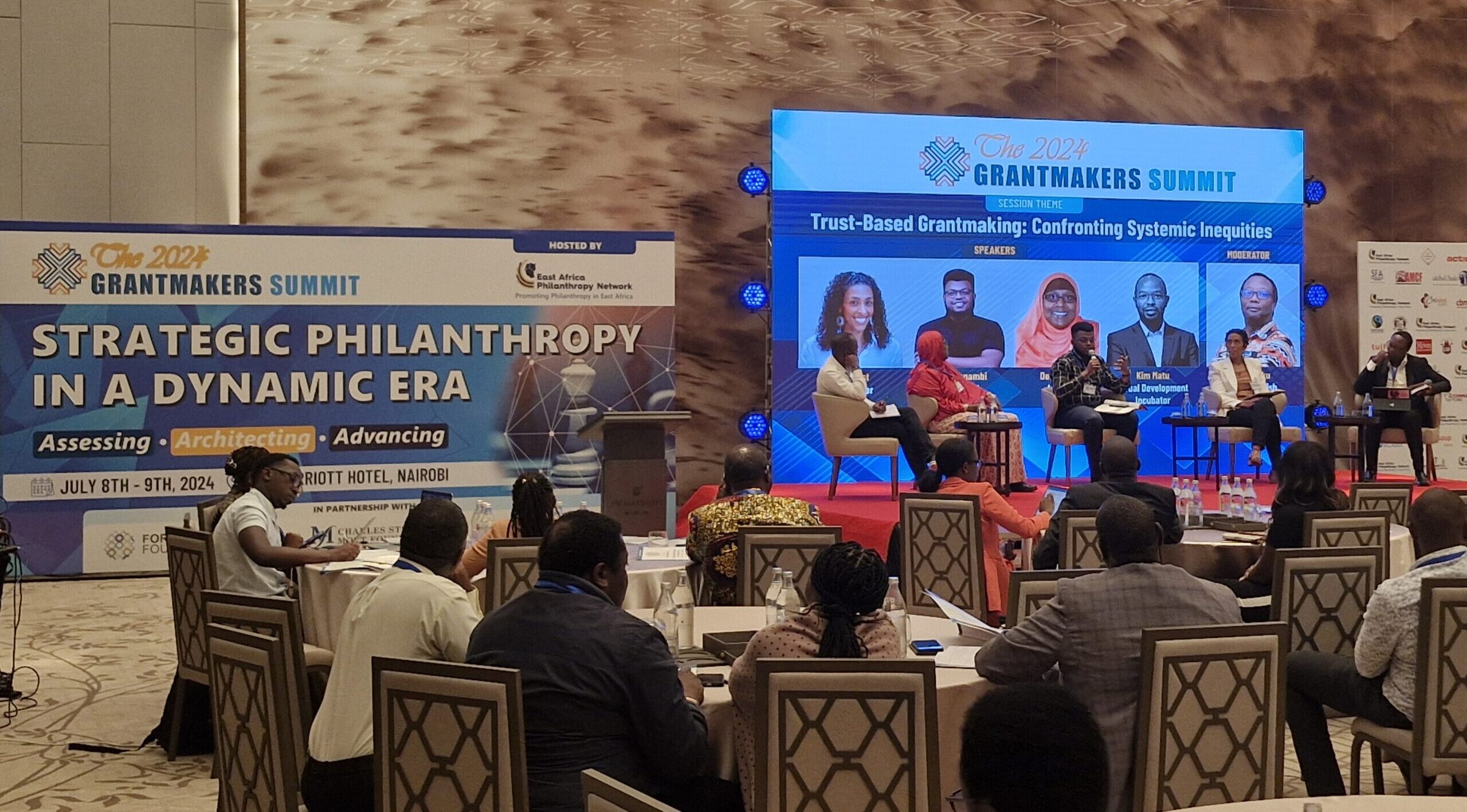
Guest post by Converge: How Engaging Emergence Makes More Possible
This is a guest post from our partners at Converge. See the original on Medium.
By Carri Munn, Nick Viele, and Zach Anderson.
This is the story of real time collaborative learning and how connection and collaboration led to impact beyond our imagination.
We woke at 3:30 AM on the west coast of the U.S. to brew coffee. We tested the best possible lighting for the predawn meeting and coaxed our bodies to be lively and brains awake to facilitate a 5 AM virtual gathering. This was not the original plan.
It all started back in January 2020 when we began imagining and designing an Impact Network Leadership Training. We conceived it as the first of an annual gathering in Nairobi where network leaders could connect with each other, share experiences, tools and practices, and ultimately spark a community of peers dedicated to impact networks. With logistics settled and the event design well underway, Small Foundation began inviting network leaders in Africa. Then COVID-19 began ravaging the planet.
The emergence of a global pandemic could have easily ended our network leadership endeavor. Disruption does not guarantee innovation. Delays, cancellations, and poor attempts at delivering a minimum viable product often result in a no-go situation. Amidst this global disruption, abandoning course would have been an acceptable conclusion. We wrestled with a common question: do we pivot or is it time to call it a day and move on?
Together with Small Foundation, we at Converge set out to support network leadership development and peer-learning across the foundation’s portfolio of impact network partners. From years of advising many impact networks across the globe, our experience has been that initiatives attempting to shift systems must prioritize cultivating trust as the basis of collaboration. The training was designed to address how network leaders can stay abreast of the evolution of network practice while focusing on developing capacity within their own networks to lead in an incredibly complex landscape.
We were reluctant to modify the curriculum. This interactive “training” would be more sharing, listening, and co-learning than teaching and preaching. A core part of the curriculum would include the network theory of change developed by Converge, which points to a pattern in social systems: connection and trust enables effective coordination which leads to the collaboration required to create system impact. Using this change process as a foundation, we imagined sharing research, experience, and tools to help participants amplify the work of their impact networks.

How do you build authentic connection over a video call? You can’t….can you!? Is it possible to cultivate mutual feelings of trust and collaboration in a weekly 90-minute call? In an arena where modeling trust and coordination is as core to the experience as the content, would we be able to convey the felt sense of connection that makes collaboration possible? Over Zoom could we generate the energetic synchronicity that happens when people partner to transform a system?
And further, would we be able to work with our partners at Small Foundation to adapt existing plans? The partnership was about to be tested.
We were being forced — or handed the opportunity — to practice the very thing we had set out to convey to our global participants.
If we believed that connection lays the foundation for better coordination, and good coordination leads to the type of collaboration needed to create impact at the system level, there was only one path forward: to remain committed to our shared purpose, and to adapt our plan to address these new circumstances. In other words, to transform the one-week in-person training into a virtual engagement for the same audience.
It turns out that we had been walking our talk within our own collaboration. We deliberately spent time cultivating relationships and trust. We witnessed true partnership with Small Foundation and many of their impact network partners. By connecting more deeply than the surface of our shared work, we built resilience into our collaboration. Because we focused on personal and professional connection, and because we had been collaborating on projects for more than a year, we knew each other. We trusted each other. The partnership was strong enough to adapt, even in the face of this unprecedented challenge.
All of us experienced the network theory of change in real-time. The Network Leadership Series emerged as a result of connection, coordination, and collaboration. After 18 sessions over six months,
We accomplished more through the pivot to virtual learning.
We hosted 25 network leaders who spend their days coordinating efforts to unlock collaborative impact in and for small and medium enterprise ecosystems in sub-Saharan Africa. They unite partners around a common purpose — not one specific goal. They intuitively understand that progress on critical social and environmental issues requires learning to engage with complexity and emergence. Their lived experience demonstrates that building trust among their partners will create the resilience needed for adaptation and innovation alongside unpredictable and ever changing external forces.
In an online format, we were able to provide greater access to a broader base of participants. Because we didn’t need to travel, we reduced our carbon footprint. We minimized, if not eliminated, expenses associated with in-person events. Participants could engage fully while minimizing time away from the ongoing coordination of their networks.
Beyond demonstrating that we can effectively convey the concepts of impact network leadership through online facilitation, we also learned that we can achieve some critical aspects of in- person experiences in a virtual context. Relationships can be built. Connections can be made. Trust can be established. Emergence begets emergence.
One surprising development was the participants’ desire to create a learning network. By the end of the series they wanted an ongoing way to stay connected, share learning, and support one another. That effort has just launched for last year’s Network Leadership Series alumni — a network of network coordinators.
Today, this adaptive experiment has traction. In ongoing partnership with Small Foundation, we are set to launch the second online Network Leadership Series for 40 participants later this month.
There still is no replacement for in-person convenings. We dream of a time where these virtual connections can be made physical ones. For now we’ll continue to discover what’s possible in cultivating trust, connection and learning in digital spaces. Even at 3:30 in the morning.
Carri, Zach and Nick, The Converge Network

